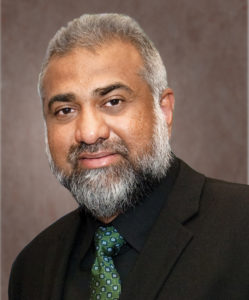
Dr. Habib Kahn
The incidence and prevalence of dementia are on the rise and are expected to increase multiple-fold in the coming years.
Unfortunately, the current available pharmaceutical options for the treatment of dementia can only modestly improve symptoms. With my more than 20 years experience of dealing with the problem, risk factor modification remains the cornerstone for dementia prevention.
Some of the most promising strategies for the prevention of dementia include vascular risk factor control, cognitive activity, physical activity, social engagement, diet, dental hygiene, a good night’s sleep and early recognition of behavioral changes, including depression symptoms. In observational studies, vascular risk factors, including diabetes, hypertension, dyslipidemia, sleep apnea and obesity, are fairly consistently associated with increased risk of dementia.
Population studies have reported that intake of antioxidants or polyunsaturated fatty acids may be associated with a reduced incidence of dementia. It also has been reported that people who are cognitively, socially and physically active have a reduced risk of cognitive impairment. However, results from randomized trials of risk factor modification have been mixed. Understanding which lifestyle and biological factors might alter the risk of dementia is crucial to preventing the disease.
Early identification and intervention of the risk factors are the keys in reducing the risk of dementia. It’s important to identify people at risk for dementia (vascular risk factors, depressive symptoms) and factors that may reduce the risk of dementia.
In particular, interventions that combine a number of factors, such as healthy nutrition, along with cognitive, social and physical activity, should be used. In the most optimistic view, dementia could be delayed or even prevented by these interventions. At worst, people will improve their overall health, especially their cardiovascular health, and enjoy a more cognitively and socially engaging life.
Remember, prevention is better than cure. Talk to your family doctor about your sleep problem, chronic pain or balance problem. For a consultation, call the Arizona Institute of Neurology and Polysomnography, at the Red Mountain Medical Plaza.
For information, or to make an appointment, call (480) 999-0049. The Arizona Institute of Neurology and Polysomnography is located at 8035 E. Brown Road, Building 4.
Dr. HABIB Khan’s profile
Dr. Habib Khan, MD, is board certified by the American Board of Psychiatry and Neurology, and is a Diplomate of American Board of Hospital Physicians and the American College of Ethical Physicians.
He received his neurology training at the University of Medicine and Dentistry of New Jersey, in Newark.

